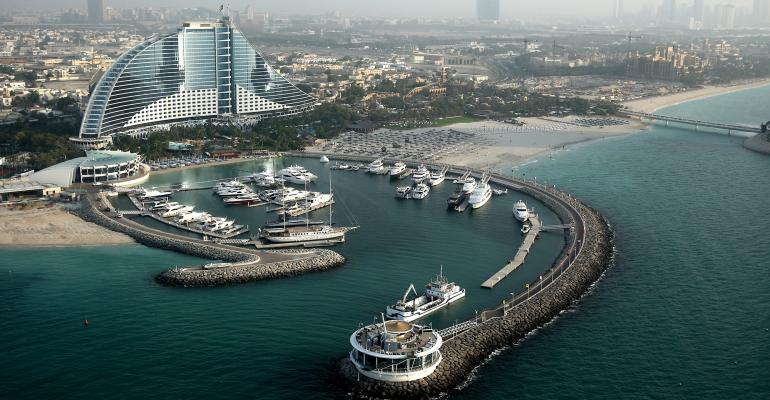As a wealth manager, should you consider investing in Dubai? Among the 600 investors and members of family offices who attended the November 2019 Ritossa conference in Dubai, a surprising number not only say, “Yes!” but also, they’re already investing in this city-state.
Why? As with any geographical area, there are pros and cons, and we’ll get into both.
The Pros
A good person to explain the pros is Mohamed Al Ali, CEO & advisor of Sheikh Ahmed Al Maktoum International Investments Enterprise. The sheikh is head of International Investments Enterprise in the United Arab Emirates (UAE), one of the organizations most responsible for Dubai’s having grown from almost nothing into one of the world’s most vibrant, modern and exciting cities.
If you were to talk with Al Ali, you’d be speaking with a tall, slender man wearing a kandura, the flowing, white ankle-length robe men frequently wear in Dubai. His English is fluent, and he has at his fingertips a large number of facts and arguments.
The first one he mentions is that Dubai and the six other members of the UAE are a crossroad for the world. As he points out, “Whether it’s China, India, the Middle East, Africa or Europe, an 8-hour flight connects us to 70% of the world’s population.”
The infrastructure he mentions for taking advantage of this central location is impressive. “We’re one of the most advanced countries in the world in terms of infrastructure. We have the biggest port in the world, and in addition, we operate 67 ports worldwide.”
Air transportation is also impressive. Emirates airline serves 85 countries across six continents, and the hospitality industry boasts one of the highest concentrations of five-star hotels of any major city in the world.
The aspect of investing that Al Ali seems most pleased with is Dubai’s ranking in the World Bank 2019 report on ease of doing business. Dubai was 11th out of 190 countries and appears to be closing in on being in the top 10.
Business-Friendly
This ranking is no accident. When the UAE was being formed back in 1958, the geographic distribution of oil fields put Dubai at a seeming disadvantage relative to its neighbors. The UAE is an oil-rich region, but surprisingly, Dubai itself has an almost negligible amount of oil when you compare it with its fellow Emirate states.
This unequal distribution could have stymied the states from joining together. Instead, Sheikh Rashid, known affectionately as the “Father of Dubai,” determined that this unequal distribution of oil riches shouldn’t be a hindrance to forming the UAE. Instead, he set Dubai on course to have its income be independent of oil.
Trade, Not Oil
According to Sheikh Rashid’s vision, trade, not oil, would be the source of Dubai’s economic well-being. That meant being trade-friendly. This in turn meant:
- A fair, honest and transparent legal system.
- World-class infrastructure, including not just transportation but also telecommunications and banking.
- An attitude of not just welcoming foreign capital, but also embracing it, encouraging it and developing a reputation for treating foreign capital so well that it would attract still more capital.
- A cultural dynamism that puts Dubai on the map, such as the tallest building in the world, the Burj Khalifa; or some of the most exciting architecture you’ll see anywhere; or countless expositions, museums and festivals.
The approach has worked. Al Ali likes to point out, “We’ve been fully independent from oil for more than 15 years.”
The Cons
What are some of the things you should look into before taking the plunge?
- The approach to doing business in the UAE requires learning local sensitivities. Relationships are important, and you may need to spend more time with the nurturing and trust-building phase than you expected.
- If you’re going to spend significant time in Dubai, be aware of the climate. Summer temperatures can easily reach 120 degrees Fahrenheit.
Mitzi Perdue is a business owner, speaker and author of the books How to Make Your Family Business Last and 52 Tips for Combating Human Trafficking. Contact her at [email protected] or call her at 410-860-4444.





